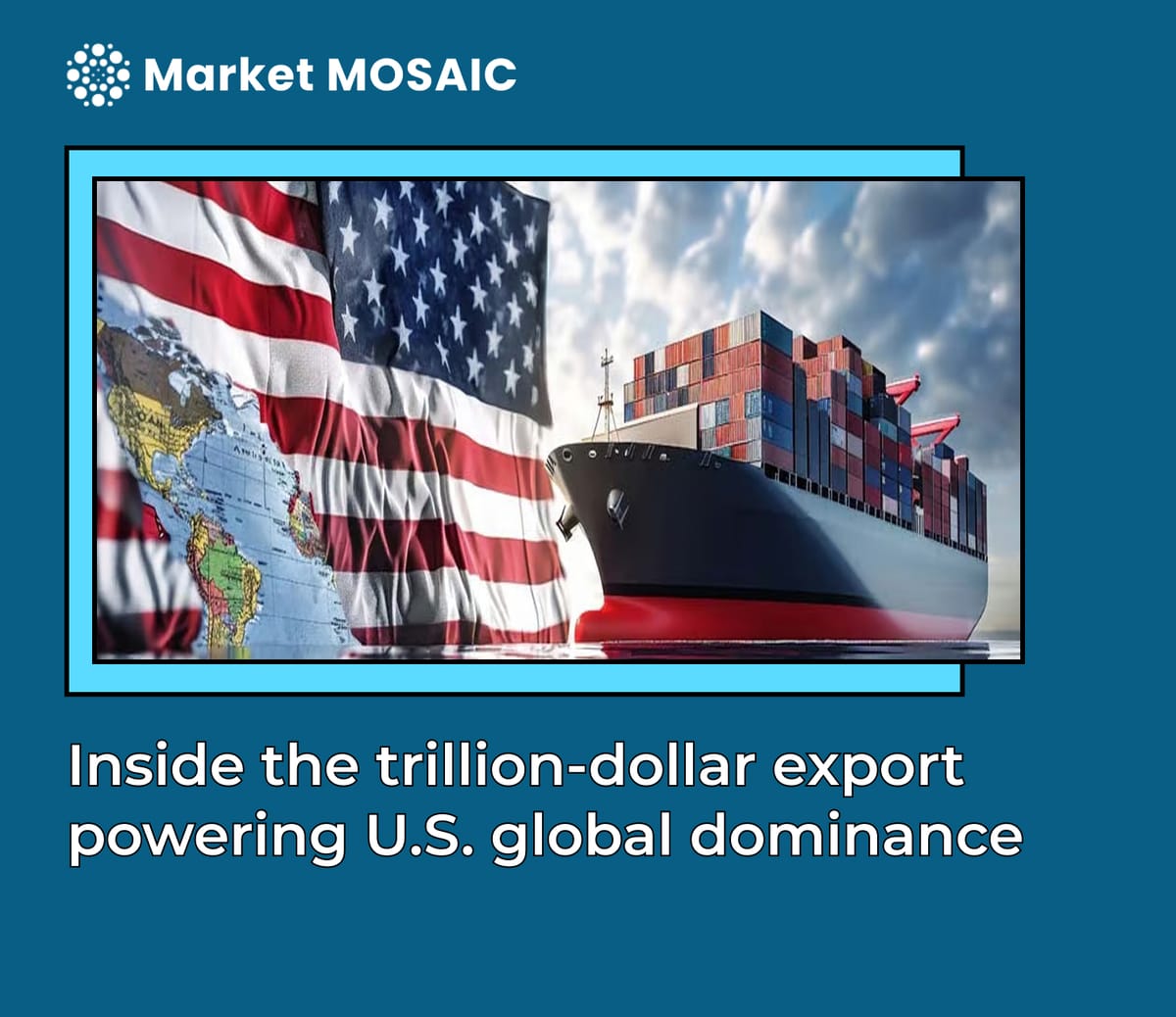Inside the trillion-dollar export powering U.S. global dominance

In a world obsessed with tangible goods and industrial muscle, a quieter force is powering the United States' global economic leadership. It's not what America makes, it's what it knows. In 2024, U.S. services exports hit an unprecedented $1.11 trillion. Behind that figure lies a story not just of trade, but of transformation, a shift that reveals what the world truly values in a digital-first, intelligence-driven era.
This wasn’t simply about scale. It was about the kind of exports the U.S. is sending into the world. Nearly seventy percent of that trillion-dollar total came from just four sectors: travel, financial services, professional consulting, and intellectual property. Each of these tells a different chapter in the same story, one in which the U.S. economy is no longer defined by what it builds, but by what it knows.
A new kind of economic power
Travel still plays a significant role. With $215 billion in revenue, it remains a powerful reminder that people continue to turn to the United States for business, education, and tourism. But the real transformation lies elsewhere. Financial services brought in $191 billion, affirming the country’s foundational position in global capital markets. Professional and management consulting generated $164 billion, revealing an appetite for U.S. expertise in strategic, operational, and technological matters. Intellectual property, perhaps the most symbolic of this shift, earned $144 billion revenue not from physical products, but from licensed ideas and intangible assets.
This distribution of value across knowledge-based sectors is no accident. It reflects the compound effect of decades of investment in education, innovation, and institutional trust. While other countries have focused on cost competitiveness, the United States has carved out leadership in value creation. It is far more difficult to replicate a trusted financial ecosystem or a market-shaping brand than to reproduce a commodity product.
Strategic signals for business leaders
The implications for business leaders are significant. The fastest-growing and most resilient opportunities now lie in intellectual capital, not traditional infrastructure. For founders and CEOs, this is a call to build smarter, not just bigger.
The data suggests that global demand is shifting toward services that are harder to copy and easier to scale consulting, financial strategy, proprietary technology, and creative work. For high-growth companies, this means moving beyond simple service delivery into the realm of expertise packaging, system design, and IP monetization. Thought leadership isn’t just a marketing play anymore, it’s a scalable export product.
Intellectual property’s $144 billion footprint is perhaps the clearest signal yet. Businesses that own the rights to algorithms, training data, media assets, and digital tools are not only protecting value, they are generating it. This is about more than patents or trademarks. It’s about building defensible moats around innovation and turning creativity into cash flow.
The resilience advantage
Another advantage of this services-based export economy is its resilience. Unlike goods that can be delayed at ports or affected by commodity price swings, services like digital consulting or licensing arrangements travel instantly and globally. The infrastructure is broadband, not freight. This gives U.S. businesses a structural edge in a world increasingly shaped by supply chain risk and geopolitical disruption.
As digital infrastructure continues to evolve through AI, cloud platforms, and secure digital payments the ability to export services will only grow stronger. America’s dominance in this space is not a static advantage. It is a flywheel, accelerating as more companies turn their intellectual strengths into global offerings.
A blueprint for the future
This is more than a milestone. It is a strategic blueprint for where the global economy is headed and how companies should position themselves to thrive within it. The most successful businesses of tomorrow won’t necessarily be those that manufacture the most, but those that invent the most, advise the most, and inspire the most.
America’s $1.11 trillion in service exports is not just a number. It’s a reflection of a new kind of economic power, one built on knowledge, trust, and vision. And for those ready to lead with insight, the future is wide open.





